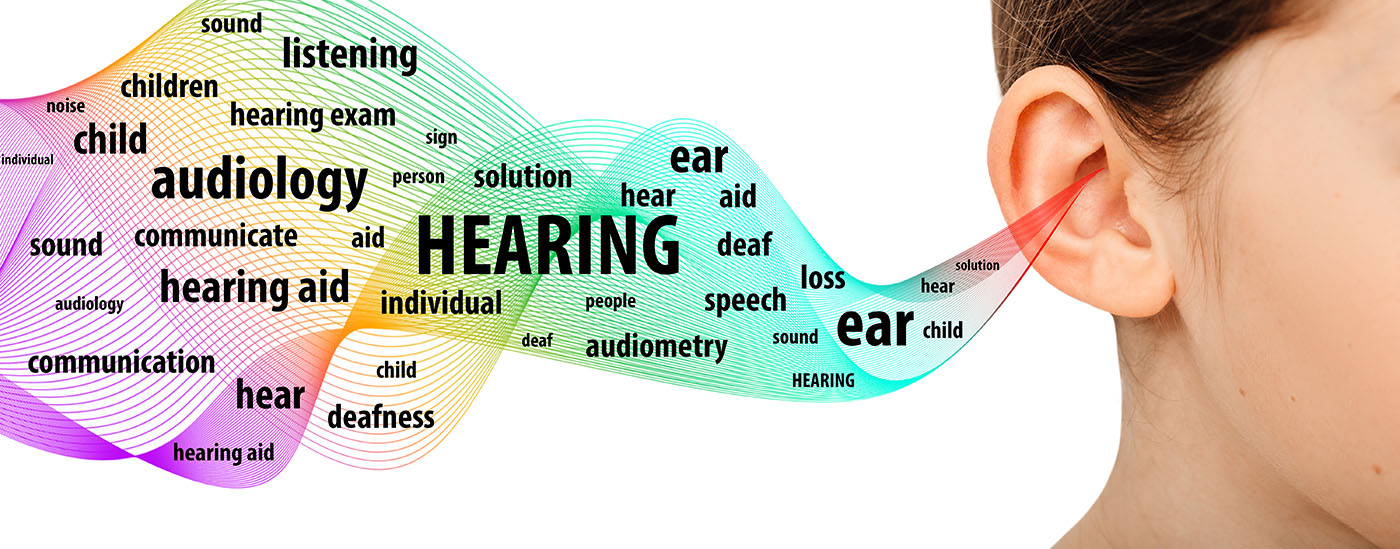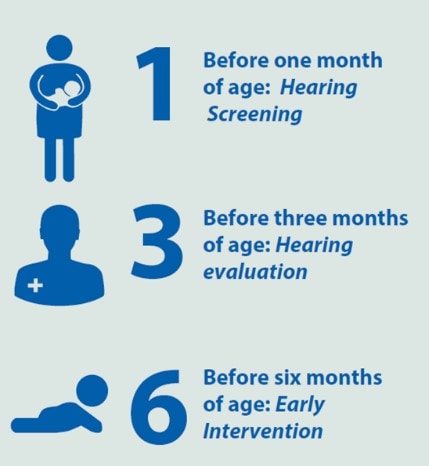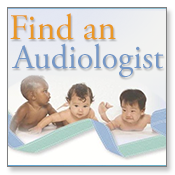Is Your Child Who is Deaf or Hard of Hearing Ready for Kindergarten?

A study by the Ohio Departments of Health, Developmental Disabilities, and Education, with support from the Centers for Disease Control and Prevention (CDC), found that receiving early intervention services before 6 months of age can help children who are born deaf or hard of hearing (D/HH) get ready for kindergarten.1 The Joint Committee on Infant Hearing recommends that all infants
- are screened for hearing loss before 1 month of age,
- have a full hearing test before 3 months of age if they don’t pass the hearing screening, and
- are enrolled in early intervention (EI) before 6 months of age if they are diagnosed with hearing loss.
When identified soon after birth, babies who are D/HH can begin intervention early and are more likely to achieve language, cognitive, and social development on par with typically developing peers.2
Parents, healthcare providers, and public health professionals can work together to make sure that all babies who are born D/HH receive the services they need on time to develop the competencies and skills that every child needs to thrive during kindergarten and beyond.
Read the full scientific article.
Main Findings
- About 60% of the D/HH children in the study entered EI before 6 months of age
- Of the children who were D/HH and entered EI, 1 in 3 who entered EI before 6 months of age demonstrated kindergarten readiness, while only 1 in 5 who entered EI after 6 months of age did.
- Compared to children who entered EI after 6 months of age, children who entered EI before 6 months of age were more likely to
- have had their hearing loss confirmed at an earlier age,
- have a risk indicator for hearing loss, and
- have a co-occurring disability diagnosis.
- Children who were D/HH and entered EI before 6 months of age had similar levels of kindergarten readiness as all kindergarteners in the state of Ohio.
About This Study
- Children who are D/HH have improved language outcomes when enrolled in EI before age 6 months. Little is understood about the long-term impact of EI on outcomes of kindergarten readiness. This study evaluates the impact of EI before age 6 months vs. after 6 months on kindergarten readiness in children who are D/HH.
- This study used data from the Ohio Data Linkage Project, which linked 1,746 records of infants born in Ohio between 2008 and 2014 who were identified with permanent hearing loss; 417 had kindergarten records.
- Kindergarten Readiness Assessment (KRA) was used to identify children as kindergarten ready; 385 of the 417 D/HH children who had kindergarten records also had KRA scores available.
About Hearing Loss in Children
About 1 in 500 babies in the United States are born D/HH. Hearing loss can affect a child’s ability to develop speech, language, and social skills. The earlier a child who is D/HH starts getting services, the more likely the child’s speech, language, and social skills will reach their full potential. Every state has an Early Hearing Detection and Intervention (EHDI) program that works to ensure that babies who are D/HH are diagnosed early and receive the services they need on time.
Early Intervention
EI program services help young children who are D/HH learn language skills and other important skills.
There are many services available through the Individuals with Disabilities Education Improvement Act 2004 (IDEA 2004). Services for children from birth through 36 months of age are called Early Intervention or Part C services. IDEA 2004 says that children younger than age 3 years (36 months) who are at risk of having developmental delays may be eligible for services. These services are provided through an early intervention system in your state. Through this system, you can ask for an evaluation.
If your child is D/HH or if you have any concerns about your child’s hearing, call 1-800-CDC-INFO or contact your local EHDI Program coordinator to find available services in your state.
Our Work

CDC’s National Center on Birth Defects and Developmental Disabilities works with states and territories to ensure that: 1) infants are screened for hearing loss no later than 1 month of age, 2) infants who do not pass the screening for hearing loss get a full hearing evaluation no later than 3 months of age, and 3) infants with a hearing loss receive intervention services no later than 6 months of age.
We do this by:
- Providing funding and technical assistance to states and territories for the development and use of systems and data tools that help ensure D/HH children receive essential services.
- Conducting studies to learn more about the experience of children who are born D/HH and their families, as well as ways of improving services to those families.
- Disseminating information on the numbers, characteristics, and services provided to babies who are born D/HH to help public health professionals, healthcare providers, and early intervention programs plan, implement, and evaluate programs for D/HH children and their families.
More Information
- CDC’s Hearing Loss in Children webpage
Key Findings Reference
- Jareen Meinzen-Derr, Susan Wiley, Wendy Grove, Mekibib Altaye, Marcus Gaffney, Ashley Satterfield-Nash, Alonzo T. Folger, Georgina Peacock and Coleen Boyle
Pediatrics September 2020, e20200557; DOI: https://doi.org/10.1542/peds.2020-0557
Additional References
- Christine Yoshinaga-Itano C, Sedey A.L,Wiggin M, Chung W. Early Hearing Detection and Vocabulary of Children with Hearing Loss. Pediatrics. 2017; 140(2): e20162964; DOI: https://doi.org/10.1542/peds.2016-2964
